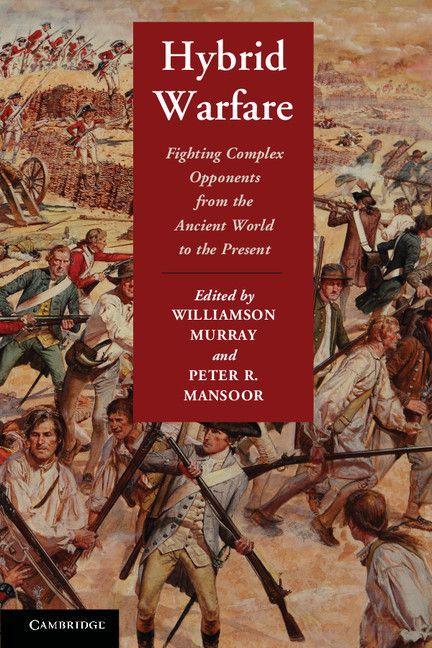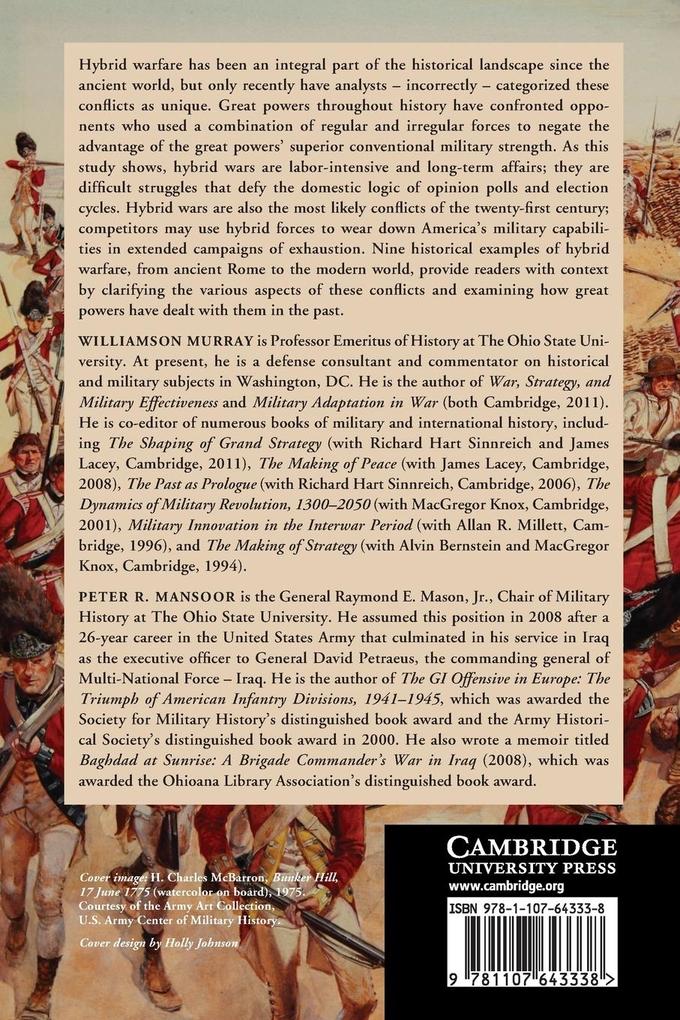Hybrid warfare has been an integral part of the historical landscape since the ancient world, but only recently have analysts - incorrectly - categorised these conflicts as unique. Great powers throughout history have confronted opponents who used a combination of regular and irregular forces to negate the advantage of the great powers' superior conventional military strength. As this study shows, hybrid wars are labour-intensive and long-term affairs; they are difficult struggles that defy the domestic logic of opinion polls and election cycles. Hybrid wars are also the most likely conflicts of the twenty-first century, as competitors use hybrid forces to wear down America's military capabilities in extended campaigns of exhaustion. Nine historical examples of hybrid warfare, from ancient Rome to the modern world, provide readers with context by clarifying the various aspects of conflicts and examining how great powers have dealt with them in the past.
Inhaltsverzeichnis
Introduction: 1. Hybrid warfare in history Peter R. Mansoor; 2. Conquering Germania: a province too far James Lacey; 3. Keeping the Irish down and the Spanish out: English strategies of submission in Ireland, 1594 1603 Wayne E. Lee; 4. The American revolution: hybrid war in America's past Williamson Murray; 5. That accursed Spanish war: the Peninsular War, 1807 14 Richard Hart Sinnreich; 6. The union's counter-guerrilla war, 1861 5 Daniel E. Sutherland; 7. Fighting 'this nation of liars to the very end': the German army in the FrancöPrussian War, 1870 1 Marcus Jones; 8. Small wars and great games: the British empire and hybrid warfare, 1700 1970 John Ferris; 9. An unexpected encounter with hybrid warfare: the Japanese experience in north China, 1937 45 Noboru Yamaguchi; 10. Hybrid war in Vietnam Karl Lowe; Conclusion: 11. What the past suggests Williamson Murray.














